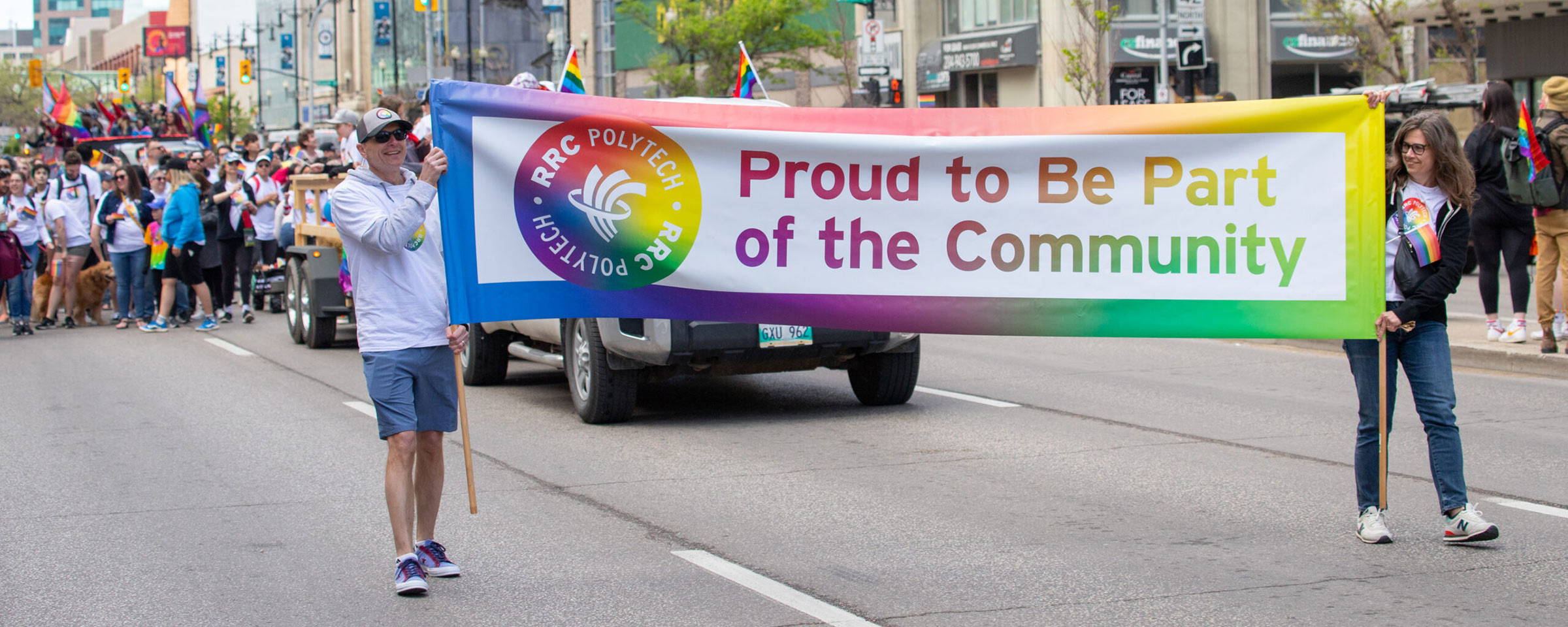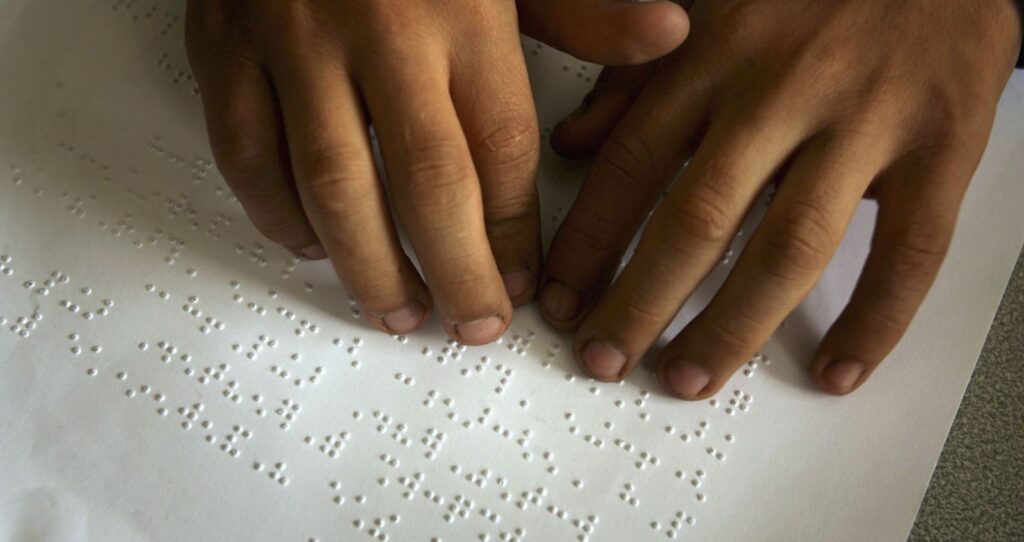Reflections on World Braille Day
The following post was written by Scott Best, who graduated from RRC Polytech’s Creative Communications program in 2015. During his time at the College, Scott engaged with the Student Accessibility Services department to access tools and equipment which helped him successfully complete his program and move into a fulfilling career.
World Braille Day was Jan. 4, 2023. I’m completely blind, and I’ve been a Braille user since I was five years old. I don’t use it as much as I did back in elementary school, but just like printing and handwriting for sighted people, Braille is still very important. If technology breaks down, I still have a low-tech backup.
The Beginning
I learned to write in Braille on a Perkins Brailler that would punch out the dots on heavy paper, and my educational assistants would transcribe the print words above my Braille ones. By the time I became a student in the Creative Communications Program at Red River College Polytechnic (RRC Polytech), I still used Braille, but as more of a companion to technology.
My College Experience

At RRC Polytech, I used a screen reading program (and still do) called JAWS for Windows to do most of my computer work that didn’t involve Braille. However, it was important for me to use Braille for taking notes, so I could be aware of what I was writing without disturbing my fellow students and my instructors.
In class, I used a braille note-taker called a Braille Sense, which is a laptop with no screen and a Braille display at the bottom. This was also how I did most of my assignments.
I used my Braille Sense for my assignments, rather than just a screen reader, so I could proofread my work. Proofreading in Braille was extremely important because in Creative Communications, we would automatically fail an assignment if we spelled names or other specific things wrong.
Once I had written one or two drafts of my assignments, I would eventually transfer them to a regular computer with JAWS, so I could format them properly and either print them in traditional print or email them to my instructors. I was able to prepare the assignments in a way that worked for me and give them to my instructors in a way that worked for them. It was really the best of both worlds.
I would receive my books and assignment handouts in electronic format, which was far faster, more efficient and took up less space than Braille. However, I could put the material on my Braille Sense if I wanted to access any of it in Braille. That was also the best of both worlds.
We had to do a lot of reading out loud in Creative communications, so the college allowed me to use Braille Translation software called Duxbury Braille Translator and a Braille embosser so I could emboss things like newscasts or ad copy that I needed to read in class or use for audio production assignments.
It was possible to read out loud using the Braille display on my Braille Sense, but because you had to refresh the display as you read, it was a lot harder to read out loud and sound smooth and natural.
Through it all, the College’s Accessibility Services was a huge help to me. They gave me everything I needed to be successful as a student and never questioned the accommodations I asked for.
After RRC Polytech
Today, I use Braille in much the same way as I did at RRC Polytech. I’m a writer and an editor for the provincial government, where I edit documents for the public to make sure they conform to government style and are written in plain language. I use my screen reader almost exclusively for that work, but I do use Braille a lot for my volunteer work.
On evenings and weekends, I work as a volunteer radio host for a terrestrial and an Internet radio station. I use my braille Sense to make up my playlists and notes about the songs and artists I play.
Technology has progressed so that I can now connect my iPhone to my Braille Sense and access almost anything on the phone using its voiceover feature or the Braille Sense’s Braille display. No matter how advanced technology gets, I’m glad that I learned Braille. It was the basis for everything else and certainly deserves to be celebrated every year around the world.

